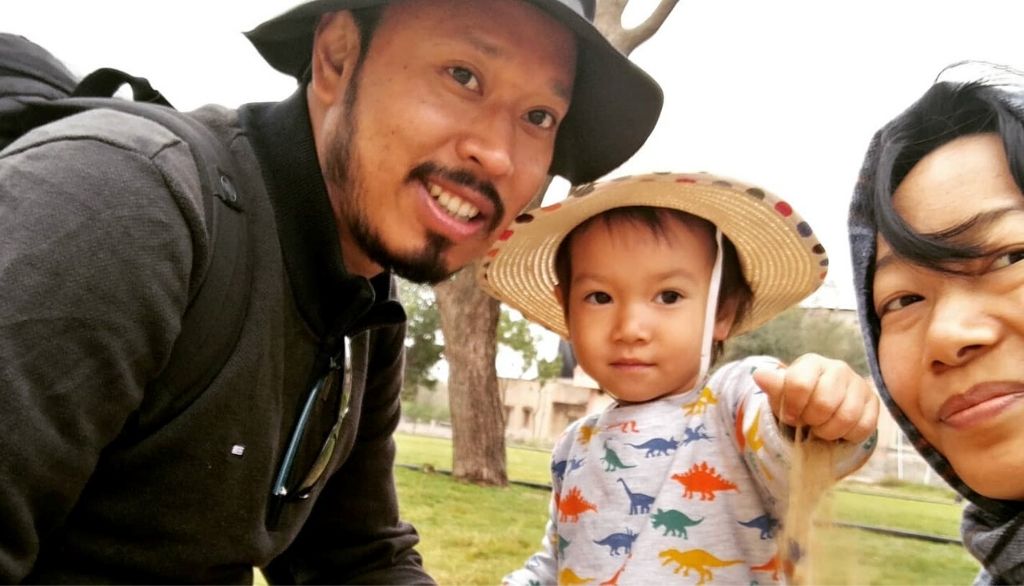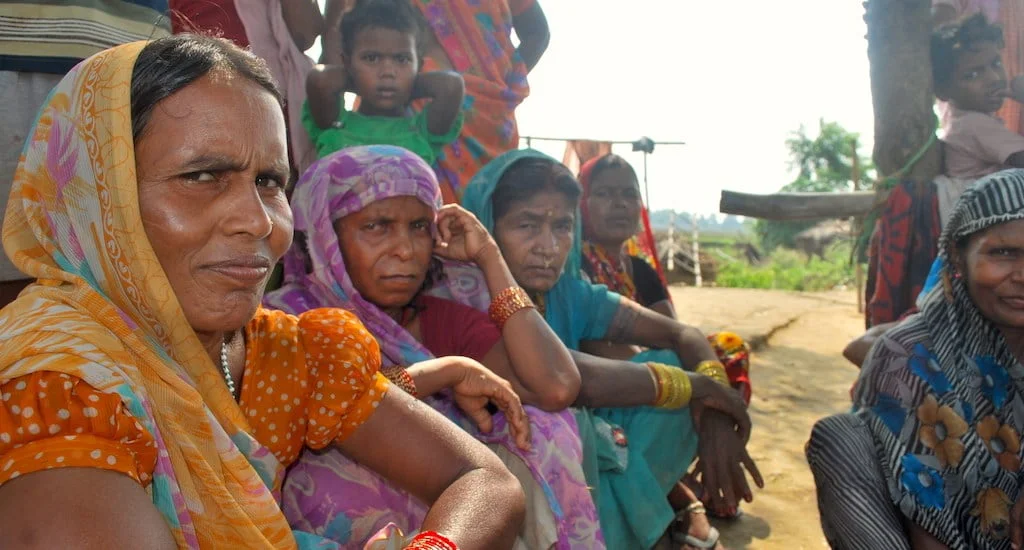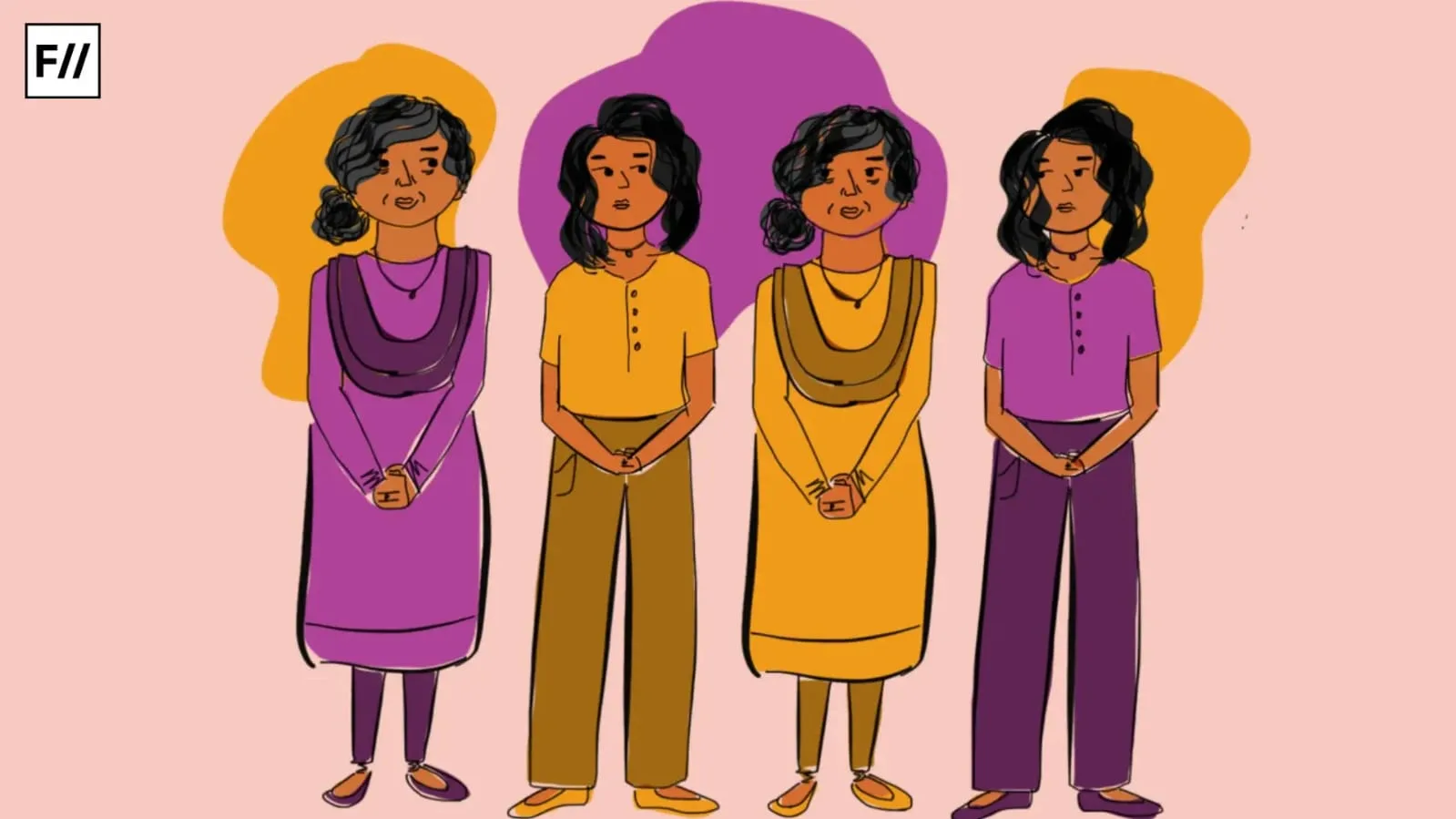Posted by Thoibi Paonam
I am a clinical psychologist living and working in Manipur. I’ve been practicing for 10 years now, and my work addresses a range of issues including HIV, torture and trauma, children in conflict with the law, LGBTQIA issues, and more. In fact, I had actually taken a small step back from my work before COVID-19 hit (as I got deeply engaged in parenting my now almost three-year-old daughter), but given the lockdown and the anxieties that came with it, I immediately ramped up my practice in April.
Being a mental health practitioner, I have been thinking about my role in this global pandemic, and what I can do to help people face the difficulties that come as a result of it. These days, more than ever, I have been wondering about different approaches I can take to address the issues that people come to me with (be it anxiety, substance abuse, marital issues, and so on), how we can work to bridge the gap in services available to them, and what more I can do.
Since therapy was not deemed an essential service, for most of the lockdown, I was not able to see clients face to face. In lieu of this, I, along with a few other psychologists gave out our personal phone details so that people could reach us when they were in distress. In the last week of March, the state health department came out with psychosocial helpline services and 19 of us volunteers were allotted to different districts and were using our own numbers to field the distress calls coming in to the helpline.
Being a mental health practitioner, I have been thinking about my role in this global pandemic, and what I can do to help people face the difficulties that come as a result of it. These days, more than ever, I have been wondering about different approaches I can take to address the issues that people come to me with (be it anxiety, substance abuse, marital issues, and so on), how we can work to bridge the gap in services available to them, and what more I can do.
Additionally, along with professionals in allied sectors (lawyers, doctors, and educators), I set up an informal collective trust in 2016—clients approach individual members of the trust for their services, and we bring in other professionals as and when they are needed. We hope that this trust can act as a one stop centre for people to access health, legal, and educational services.
In the beginning of June, I, along with other psychologists and allied professionals, made a targeted effort to reach out to frontline workers. Frontline workers have been overworked even before COVID-19, and the pandemic has made things more difficult for them. Knowing that they are the ones who are vulnerable and facing a great deal of emotional distress, we want to make sure that they have support in easing their anxieties.
In an attempt to address their worries, the State Nodal Officer began to actively ask frontline workers to reach out to mental health professionals. In addition, she shared some of their numbers with professionals like myself so that we can call them, check in to see how they are doing and offer support. This initiative, along with the other distress calls I receive, takes up a large amount of my time during the day, especially since as of July 1st, we have streamlined the helpline numbers, which has resulted in an uptick in the number of calls. Additionally, since early June, I have been able to have in-person sessions with clients as well.
And of course, I also try and make sure I have enough time and energy to spend with my daughter. Since the lockdown is still in place and we don’t have our usual help at home, I have been trying to do most of the household chores including cooking and cleaning. My daughter tries to help by doing dishes and washing clothes with body soap—she usually creates more of a mess, but we enjoy our time together. Other than that, parenting is easy as my husband takes care of a major chunk of it if I am on a call or attending sessions.

7.00 AM: I make breakfast and we eat together as family. My sessions take place at home, and they start as early at 9.00 AM (sometimes earlier if a client requests it). Clients come to me to discuss all kinds of things—some are dependent on substances and aren’t ready to quit or cannot find an alternative because of a lacking support system, some are women who are facing domestic issues and don’t have access to support channels, others are dealing with mental distress and want to talk to somebody.
Also read: Human Vs. State: Mental Health In The Context Of Political Turbulence
10.30 AM: In the backdrop of the pandemic, board exam results have been announced. Given this, I have been receiving calls from parents who are looking for help with consoling their children who performed badly. Wanting to reach children who might be testing their worth through exams, I call a community teacher to help me connect with students who have been down after they received their marks. I then begin to reach out to these children so that I can listen to their struggles and try and give them a fresh direction and perspective to this assumed failure.
2.00 PM: I call one of the members of our collective trust to draw on their expertise for a client who came to me with marital problems and is now in need of legal assistance. Since the member I am speaking to is a lawyer, I am able to get their insights and follow their lead.
In an attempt to address their worries, the State Nodal Officer began to actively ask frontline workers to reach out to mental health professionals. In addition, she shared some of their numbers with professionals like myself so that we can call them, check in to see how they are doing and offer support. This initiative, along with the other distress calls I receive, takes up a large amount of my time during the day, especially since as of July 1st, we have streamlined the helpline numbers, which has resulted in an uptick in the number of calls.
In-person sessions and calls continue through the day (the face to face sessions end by 6.00 PM). A lot of the people who call do so because they don’t have access to information—about the virus, services available, and who they can turn to if they need support. Some of the callers want to be directed to other social services (support for domestic abuse, drug use, and so on). In the early days of the lockdown, I also received a sizeable volume of calls from Manipuris who are living in other parts of the country (such as Bangalore and Delhi) and are facing discrimination and aggression because of their race and appearance.

5.00 PM: I work on a training module I am developing for fieldworkers and facilitators who are working with children living with HIV. The programme covers things such as how to give psychological first aid, how to care for themselves while doing their work, and more. I hope to launch it in early July.
7.00 PM: Some more work around the house, I like to make sure that my daughter eats as much home-cooked food as possible, so I make dinner and we eat together. At around 8.30 PM I tuck her into bed.
11.00 PM: I get a distress call from a frontline worker who is on duty—this is unusual, so it surprises me. The person on the phone seems hostile and refuses to divulge their name. Slightly taken aback, I request them to stay on the phone with me as I talk them through their stress. Wanting them to remain engaged, I ask them to put me on loudspeaker and address each of the points they bring up (fear, uncertainty, anger because of administrative issues). When I tell them that I am not a state employee, but instead someone who is volunteering time because I felt the need for my services, the ice breaks between us. I then take them through some breathing techniques, and reiterate how much respect I have for the work that they do. After half an hour of listening, and talking with them, I feel comparative ease on the other end of the call.
Also read: Covid-19: Why Are Women More Vulnerable To Mental Health Issues?
The lockdown has reminded me how much professional women juggle—their work, the emotional needs of their families, and all the caretaking responsibilities. Personally, I am able to do all of the things I do, and take on new projects because my husband is encouraging, and has been a backbone of support through my journey.
As told to IDR.
Know more
- Learn more about the collective trust Thoibi and her allied peers started.
Do more
- Share these lists of mental health professionals who are providing tele-counselling and online support during this period.
Thoibi is a clinical psychologist with interest in intersectional areas, including children, youth, LGBTQIA, education, and so on. Currently, she is actively fielding distress calls and providing psychosocial support related to COVID-19, along with the team at the directorate of health, Manipur. Thoibi is a mother to a three-year-old, is striving to be actively involved in parenting, and is keen on learning new things from the people she comes across.
This piece was first published on India Development Review (IDR) and has been re-published here with consent.
Featured Image Source: India Development Review
About the author(s)
India Development Review (IDR) is India's first independent online media and knowledge platform for the development community.




